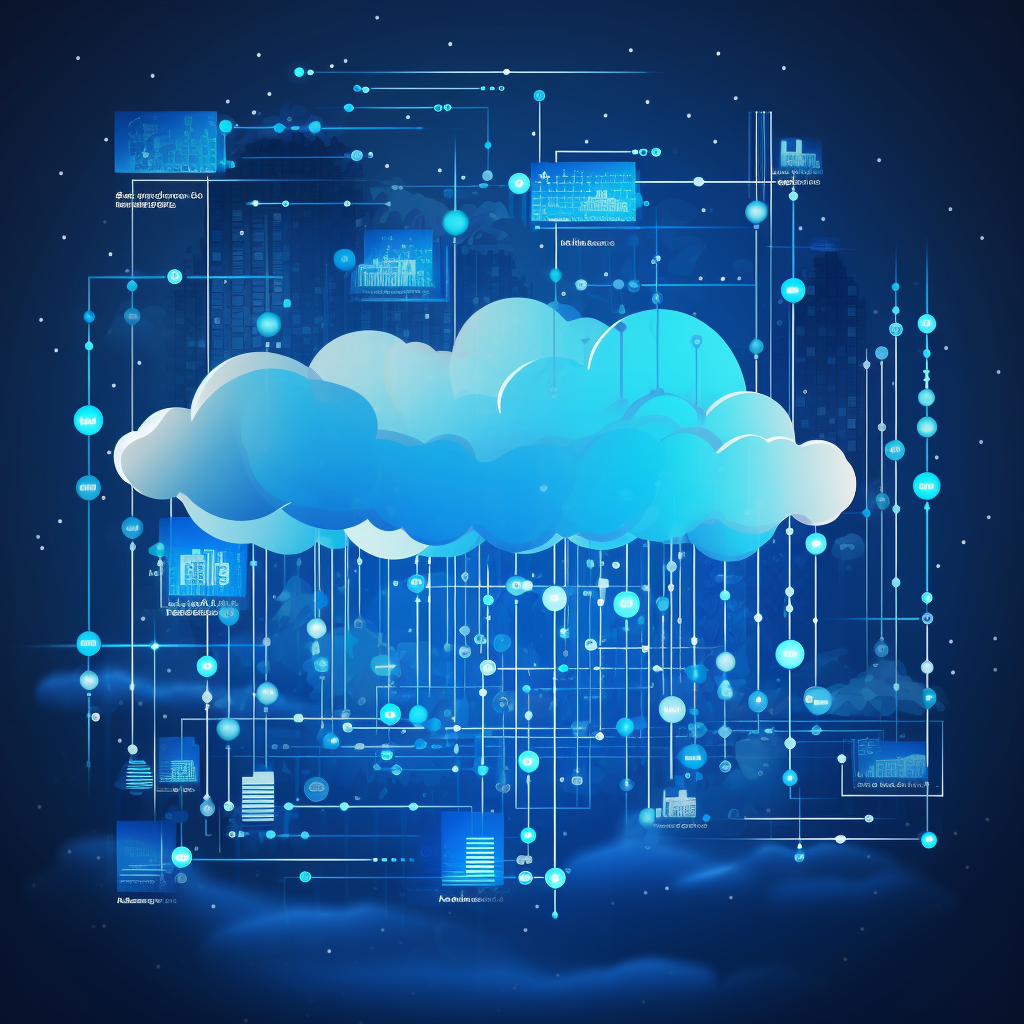
Enterprise Resource Planning (ERP) systems play a crucial role in streamlining operations, optimizing processes, and driving growth.
However, with the advent of cloud technology, businesses are faced with a critical decision: whether to opt for a cloud-based ERP solution or stick with the traditional on-premise models. Let’s dive into the pros and cons of both approaches to help you make an informed decision that aligns with your business objectives.
Understanding Cloud-Based ERP
Cloud-based ERP systems, also known as Software as a Service (SaaS) solutions, are hosted and maintained by a third-party provider in the cloud. This means that businesses access the ERP software via the Internet, eliminating the need for on-site infrastructure and maintenance.
Cloud ERP offers several key advantages:
- Scalability: Cloud ERP systems are highly scalable, allowing businesses to easily scale up or down their resources based on changing needs. This flexibility is particularly beneficial for growing businesses or those experiencing fluctuating demand.
- Accessibility: With cloud ERP, users can access the system from anywhere with an internet connection, enabling remote work and facilitating collaboration among geographically dispersed teams.
- Cost Efficiency: Cloud ERP typically follows a subscription-based pricing model, with lower upfront costs and predictable monthly expenses. Additionally, businesses can avoid the expenses associated with on-premises hardware, maintenance, and IT staff.
- Automatic Updates: Cloud ERP providers handle system updates and maintenance, ensuring that businesses always have access to the latest features and security patches without the need for manual intervention.
Despite these benefits, cloud ERP may not be suitable for every business, especially those with specific security or compliance requirements, as data is stored off-site on servers managed by the ERP provider.
Exploring On-Premises ERP
On the other hand, on-premises ERP systems are installed and maintained on the organization’s own servers and infrastructure, typically located on-site at the business premises.
While on-premises ERP comes with its own set of challenges, it offers several advantages:
- Control and Customization: With on-premise ERPs, businesses have full control over the system and can customize it to meet their unique needs and preferences. This level of control is particularly beneficial for businesses with complex processes or industry-specific requirements.
- Data Security: On-premise ERPs allows businesses to maintain full control over their data and infrastructure, which can be crucial for industries with strict regulatory compliance requirements or sensitive data handling needs.
- Performance: Since on-premise ERPs systems are hosted on local servers, businesses have greater control over system performance and can optimize hardware and resources to meet specific performance requirements.
- Long-Term Cost: While on-premise ERPs may require a higher upfront investment in hardware, infrastructure, and IT staff, it can be more cost-effective in the long run for businesses with stable operations and predictable IT needs.
However, on-premise ERPs systems may be less flexible and scalable compared to their cloud counterparts, and businesses are responsible for handling system updates, maintenance, and security measures.
Making the Right Choice for Your Business
When it comes to choosing between cloud-based and on-premise ERPs, there is no one-size-fits-all solution. The decision should be based on several factors, including:
- Business Needs and Objectives: Consider your business goals, budget constraints, scalability requirements, and industry-specific regulations when evaluating ERP options.
- IT Infrastructure and Resources: Assess your organization’s existing IT infrastructure, capabilities, and resources to determine whether you have the necessary infrastructure and expertise to manage an on-premises ERP system effectively.
- Data Security and Compliance: Evaluate your data security and compliance requirements to determine whether on-premises or cloud-based ERP is better suited to meet your organization’s security and regulatory needs.
- Total Cost of Ownership: Consider the total cost of ownership, including upfront investment, ongoing maintenance costs, and potential scalability requirements, when comparing cloud and on-premise ERP solutions.
Choosing between cloud-based and on-premise ERPs is a critical decision that requires careful consideration of your organization’s unique needs, objectives, and resources.
While cloud ERP offers scalability, accessibility, and cost efficiency, on-premise ERPs provide greater control, customization, and data security. By weighing the pros and cons of each approach and aligning them with your business priorities, you can make an informed decision that sets your organization up for success in the ever-evolving digital landscape.
Need help determining which ERP solution is right for you and your organization? Get in touch with us at Triple Helix. We provide ERP Selection Consulting services and can help you avoid feeling overwhelmed and gain clarity during your ERP selection process.
Recent Blog Articles
Recent Blog Articles

When Online Dating Goes Wrong: The Dark Side of Digital Romance
Published on: February 4, 2025
Online dating has revolutionized how we connect with potential partners. Platforms like Tinder, Bumble, and Hinge offer convenience and a vast pool of singles at our fingertips.
Read time: 38 min

Maximizing ROI with Custom Software: A Smart Investment for Sustainable Growth
Published on: January 28, 2025
Organizations must continuously evolve to stay ahead. One of the most impactful ways to achieve long-term success is by investing in custom software solutions.
Read time: 23 min

AI-Powered Productivity: How Artificial Intelligence is Reshaping Your Industry
Published on: January 21, 2025
Companies that embrace AI today are positioning themselves for long-term success, unlocking unprecedented productivity and innovation.
Read time: 42 min

From Chaos to Control: How ERP Systems Revolutionize Business Operations
Published on: January 14, 2025
Enterprise Resource Planning (ERP) software has become an indispensable tool for organizations across various industries, transforming operations, improving productivity, and reducing inefficiencies.
Read time: 46 min

Tech-Enhanced Superpowers: Gadgets That Make You Feel Like a Superhero
Published on: January 7, 2025
Exoskeletons that grant superhuman strength, smart glasses that enhance vision, and wearable devices that provide a sixth sense, technology is enabling us to surpass our natural abilities.
Read time: 55 min

The Role of Tech in Modern Dating: From Swipe Right to Virtual Dates
Published on: December 31, 2024
Technology has fundamentally transformed every aspect of our lives, including the way we date. Gone are the days when meeting someone new required attending social events.
Read time: 41 min

Tech-Powered Ghosts: Can AI Bring Back the Voices of the Dead?
Published on: December 24, 2024
Humanity has always been fascinated by the afterlife and the possibility of communicating with those who have passed on. This curiosity has driven many stories, myths, and even scientific pursuits.
Read time: 29 min

